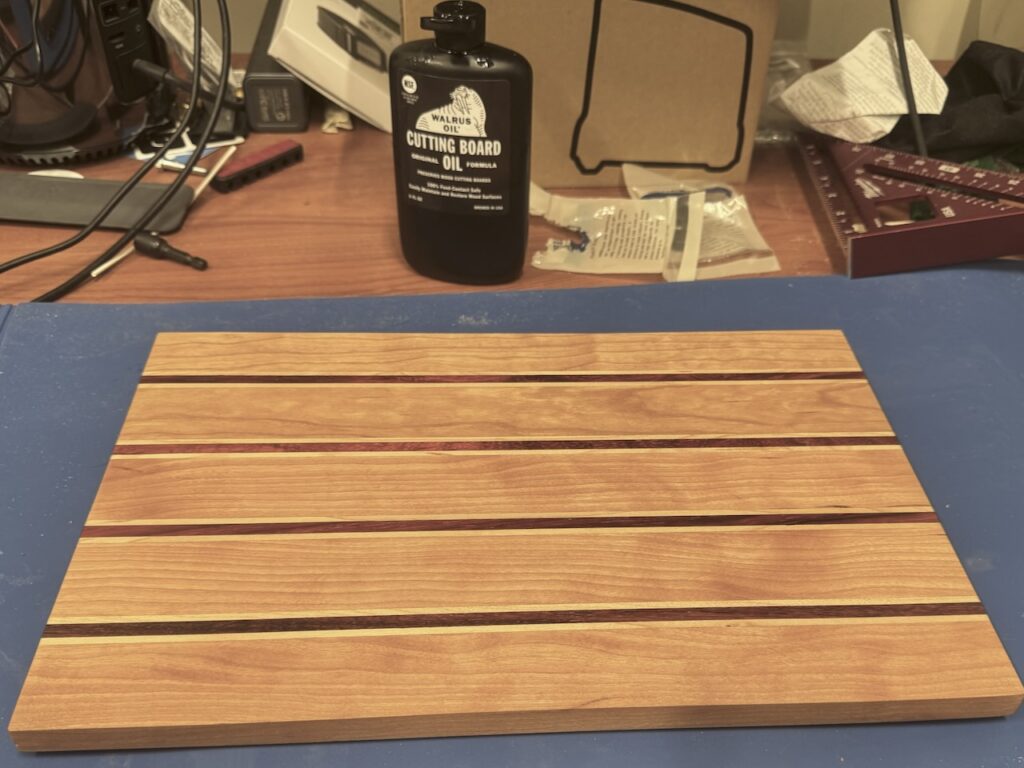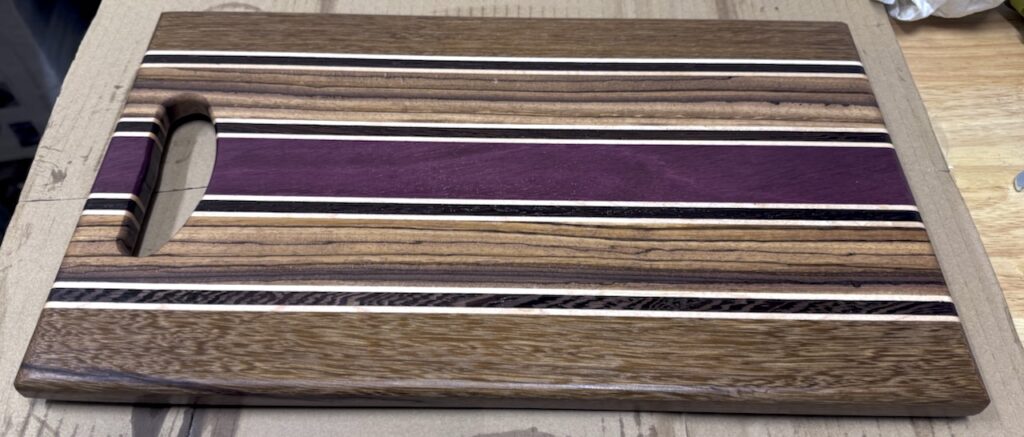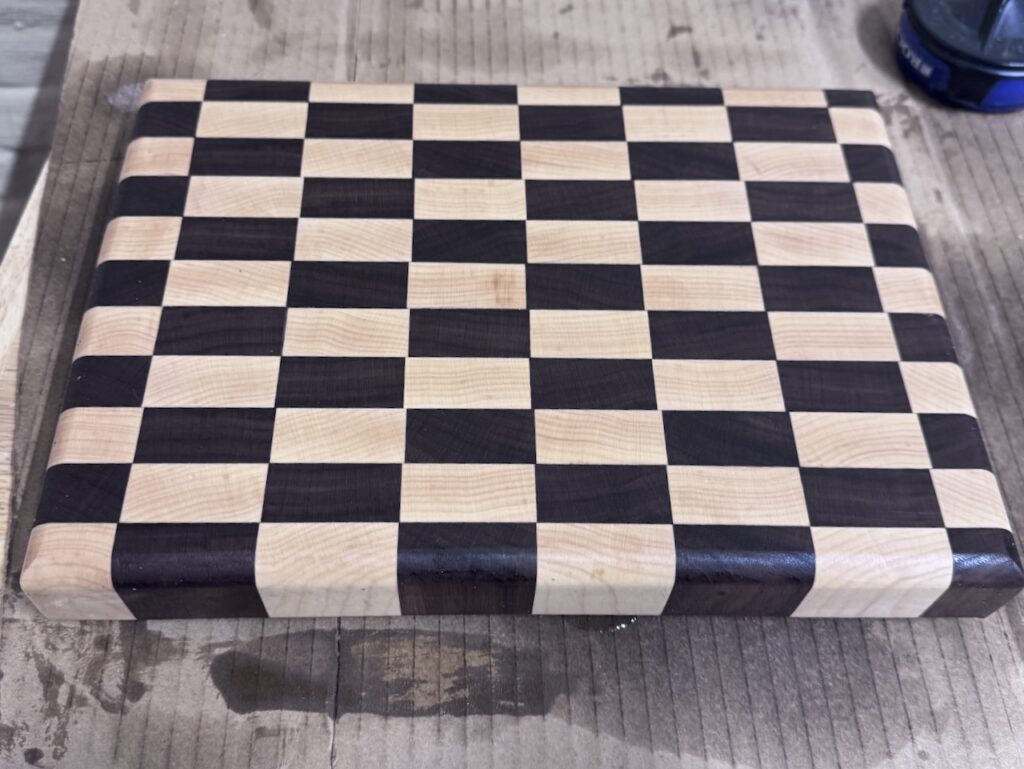I’ve taken up woodworking as a hobby, and while I hope to focus on making furniture, currently my skills are much more limited. Right now I’m focusing on making cutting boards since I can build various skills, avoid spending a ton on wood, and give them away as gifts.



Mistakes, I’ve made a few
My woodworking journey is humbling. I know so little and make tons of mistakes. Yet I’m learning so quickly by making those mistakes and am often able to find ways to fix them. For example:
- On my very first board, I didn’t do a good job cleaning the glue squeeze-out, so I figured I would address it when it dried. Scrapping the dried glue off wasn’t going as quickly as I liked, so I used low-grit sandpaper and aggressively sanded with my orbital sander. My technique was poor, and my board was far from flat when I was done. Luckily, my planner was able to fix my board, but it did result in a thinner board.
- On my first edge-grain board, I knocked over the strips of the edge-grain board I made as part of the process onto the floor. This caused two glued-up strips to break apart, indicating they weren’t glued up well. I tried to fix them simultaneously as I glued all the strips together. This was a big mistake; I should have repaired the strips separately. This was harder to recover from, but ultimately, I could salvage a smaller board with one minor crack in it.
Making mistakes can be incredibly frustrating, yet in some domains (like woodworking), I find excitement and joy in the opportunity to learn and build new skills. Yet in other domains, I easily become frustrated. I suspect much of it is based on my attitude and mindset going into the work. If my goal is to learn, then failure isn’t bad. If my goal is only to get something done, I am much more likely to become disgruntled when something goes wrong. Obviously, I need to try to use the learning lens as much as I can!